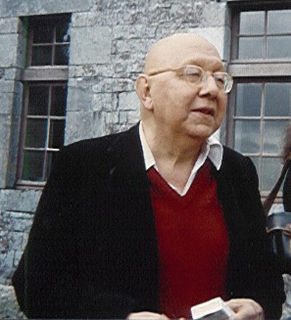A Quote by Ursula K. Le Guin
There have been great societies that did not use the wheel, but there have been no societies that did not tell stories.
Related Quotes
In many shamanic societies, if you came to a medicine person complaining of being disheartened, dispirited, or depressed, they would ask one of four questions: 'When did you stop dancing? When did you stop singing? When did you stop being enchanted by stories? When did you stop being comforted by the sweet territory of silence?'
In a cross-cultural study of 173 societies (by Herbert Barry and L. M. Paxson of the University of Pittsburgh) 76 societies typically had mother and infant sharing a bed; in 42 societies they shared a room but not a bed; and in the remaining 55 societies they shared a room with a bed unspecified. There were no societies in which infants routinely slept in a separate room.
Feudal societies don't create great cinema; we have great theatre. The egalitarian societies create great cinema. The Americans, the French. Because equality is sort of what the cinema deals with. It deals with stories which don't fall into 'Everybody in their place and who's who,' and all that. But the theatre's full of that.
We view Sufism not as an ideology that molds people to the right way of belief or action, but as an art or science that can exert a beneficial influence on individuals and societies, in accordance with the needs of those individuals and societies ... Sufi study and development gives one capacities one did not have before.
We see that there are two different kinds of...societies: (a) parasitic societies and (b) producing societies. The former are those which live from hunting, fishing, or merely gleaning. By their economic activities they do not increase, but rather decrease, the amount of wealth in the world. The second kind of societies, producing societies, live by agricultural and pastoral activities. By these activities they seek to increase the amount of wealth in the world.
While all societies make their own imaginaries (institutions, laws, traditions, beliefs and behaviors), autonomous societies are those that their members are aware of this fact, and explicitly self-institute (????-?????????). In contrast, the members of heteronomous societies attribute their imaginaries to some extra-social authority (i.e. God, ancestors, historical necessity)







































